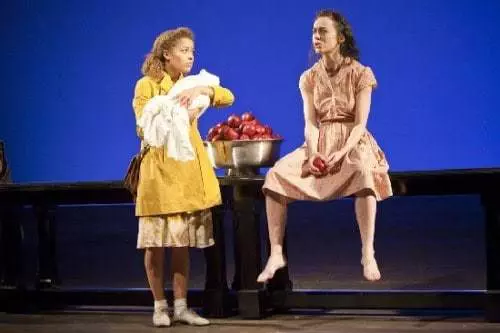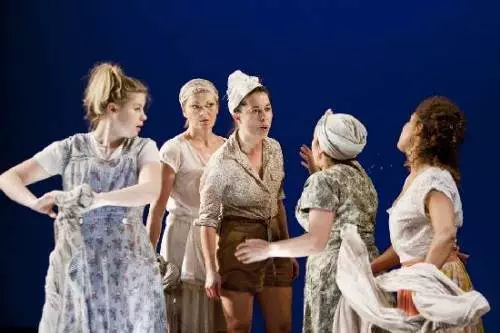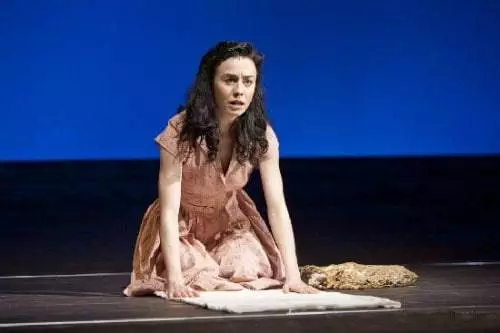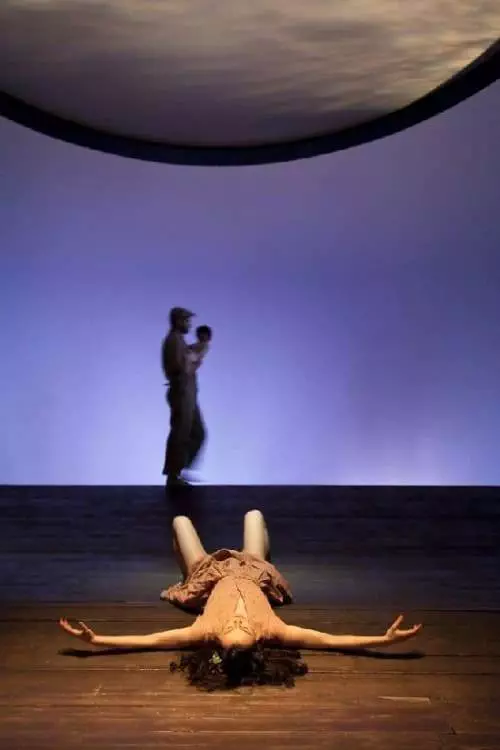
When I mentioned that I’d like to run a competition on Culture Vultures to win tickets to see Yerma at The West Yorkshire Playhouse Emma was a little sceptical. “What’s it about,” she enquired. “Well, it’s a lyrical tragedy about a woman who desperately wants a child but marries a man who is about as interested in reproduction as your average liberal, lefty vegetarian is in bullfighting . . . it was written in Spanish in the 1930’s by a guy called Lorca . . . he wrote a lot of poetry . . . and a few tragedies . . . poetic tragedies . . .” Emma’s face was immobile for a very long moment. That’s never good. “Hmm, sounds a jolly evening, what sort of competition? How will people win tickets to this misery fest?” “They’ll write poems” I said, “Erm, poems about things they really want in life but just can’t have.” “Best rhyme wins?” said Emma, not entirely won over by my less than rapier-like rhetoric, “you think it’ll work? You think people will really write a poem for a couple of tickets?” “Yep,” I bluffed, “they surely will . . . “ Emma, supportive as ever, sighed and smiled a little smile –more of a smirk if truth be told – “then you go for it . . . we’ll see.”

And we did see. Culture Vultures got a crop of cantos, a burst of verse, a plenitude of poetry . . . well, we got a few little rhymes so I didn’t embarrass myself too much. The tickets went to worthy winners who enjoyed the play, in fact have raved about it for the past week or so and told all their friends how marvellous it was. Or at least people within earshot down the pub. Unfortunately I couldn’t convince any of them to commit their appreciation to paper – or indeed pixels to be more accurate. So I ended up going to the press night to see what all the fuss was about.

I have to admit, the first five minutes or so were baffling. An empty stage, just a bit of a slope towards the back, some kind of large white illuminated oval overhead (a bit like a super-sized lampshade) and a young barefoot girl carrying a bucket – I’d never really thought about the role of domestic sanitation equipment in dramatic tragedy before, but Yerma and the bucket seemed inseparable – then some frankly sexual gyrations to a vigorous drumbeat before a big guy, a bit of a hunk, enters followed by a small kid (well, it’s a doll, but you know what they say about working with child actors.) Yerma stops her private dancing and stares at the uncanny pair. There’s an intense expectation that something should be said, but a bell chimes, the bloke and the boy drift off and Yerma reunites with her beloved bucket . . . it’s all a bit odd.

It doesn’t get any more sensible either. Yerma starts to sing. A lullaby. Suddenly it dawns on you that she’s singing in an Irish accent, and we aren’t in Castile any more – or wherever the play was originally set – we’re in the Wicklow Mountains . . . I whispered to my companion that this was more Fredrick O’ Lorca than Federico Garcia (a poor joke but I couldn’t resist repeating it.) This wasn’t what was expected.

But after a few minutes you accommodate to the strangeness and sink into the story . . . Yerma’s desperate longing for a child, Juan’s stolid resistance, the gossiping neighbours, the lost opportunity for passion and procreation with Victor, the inevitable tragic ending. The bare stage and few props – a bucket, a table, a basket of wet sheets, a green scarf – highlight and intensify the words. And Yerma is all about the poetry. I must admit this worried me a bit at first. My Spanish is a bit rusty, but I “did” Lorca at Uni (yes, it was a long time ago) and remember how tricky his stuff was to translate without sounding clunky, literal, heavy handed. But this version by Ursula Rani Sarma is beautifully done and utterly believable – the dialogue never sagged or soured and the songs were “poetical” without being flowery or fussy. The script sounded a joy to perform and the cast did a magical job of bringing it to life.

Of course, like most tragedies, if you think about it too much the plot is a bit ridiculous and the characters would really get on your nerves if you had to put up with them in real life. Yerma really needs to lighten up, get a little more flexible! There’s a very simple solution to her predicament if she’d only get over herself. Juan doesn’t deserve his rather unbelievable ending and Victor could do with a bit of a slap . . . he’s got Yerma on a plate, he just needed to make a move. Anyway, there wouldn’t be tragedy or poetry at all if we thought so sensibly. Go see the play though (it’s on till 26 March) it’s not like anything you’ll experience in real life . . . at least I hope not.
